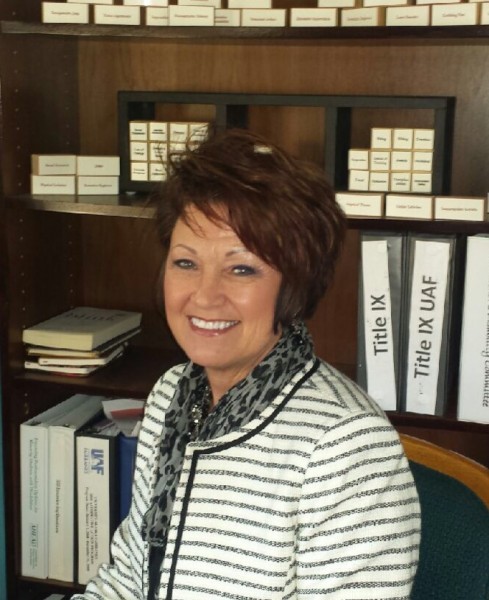Title IX update
May 6, 2015
 By Mae Marsh
By Mae MarshUAF Title IX coordinator
As we near the end of the academic year, I wanted to update the campus on our Title IX efforts. We began the academic year with preparations for the federal Office of Civil Rights’ visit. It was set against the backdrop of a sobering statistic: More than half of Alaska’s adult women have experienced intimate partner violence, sexual violence, or both, in their lifetime.
To better educate the campus community on Title IX, we launched an awareness campaign with campus signage, literature, social media posts and face-to-face meetings with students, faculty and staff. We introduced the Green Dot program and implemented a new training program. I am very pleased to report we had a 97 percent completion rate for the training by the end of September.
While I believe that our campus awareness is higher than it was a year ago, I want to reinforce a few key points.
I can’t say enough about the importance of reporting. And I want both employees and students to know that we take every report seriously, we investigate those reports thoroughly, and we take appropriate action.
Regardless of where or how a victim chooses to report partner or sexual violence—to the police department, to the Title IX office, to a university employee or even to one of our community partners like the Interior Alaska Center for Non-Violent Living—the university can act swiftly to provide the support that person needs.
Many people may not know that Title IX provides the university the framework for its own investigation. That investigation moves more quickly than the criminal process. While both provide due process to victims and alleged perpetrators, the Title IX process has a lower standard of proof than the criminal process does, and is not tied to the outcome of a criminal trial. If a Title IX investigation finds it more likely than not that the alleged perpetrator committed the act, the university can impose additional sanctions, including suspension or expulsion.
We can also ban alleged perpetrators from campus, provide escorts and counseling services, or allow a victim to move to a different residence hall, for example. We can also provide a wide range of academic supports: For instance, we can provide tutoring or alternate course delivery methods, or make arrangements for a victim to retake a course or withdraw from a class without penalty.
Throughout the entire process, our goal is to ensure that victims have the support they need and are empowered by having a seat at the table, if they want it. That is the most powerful thing about Title IX.
I want to thank the campus community for your continued support and attention to this very important issue facing our campuses and universities across the country. Together, with a greater awareness and understanding about how we can stop sexual violence, we can make UAF a safer place for our students, employees and our community. For more information on Title IX please visit http://www.uaf.edu/oeo/title-ix/.


